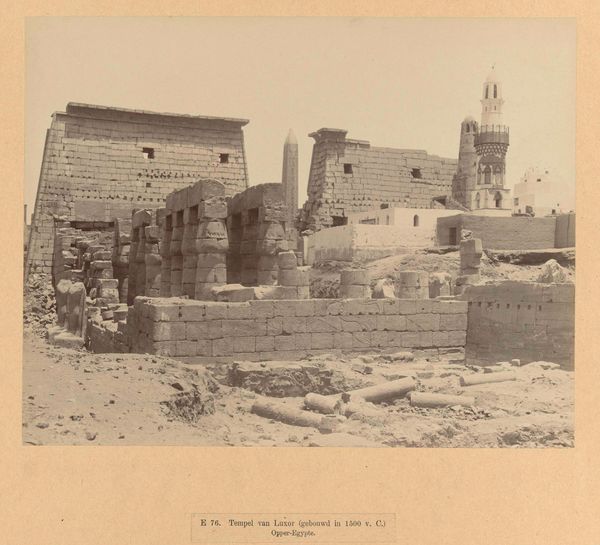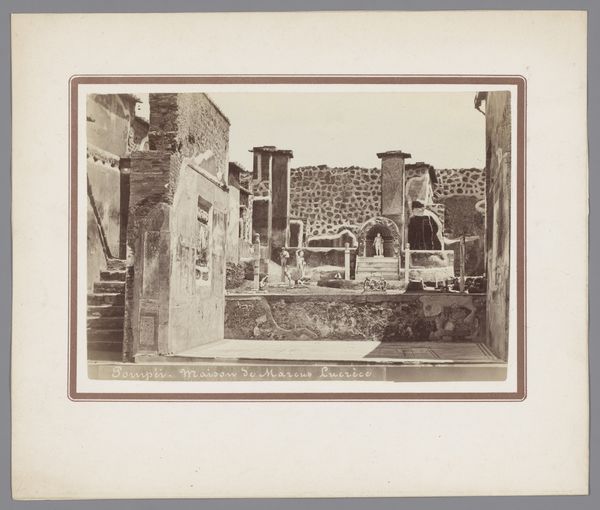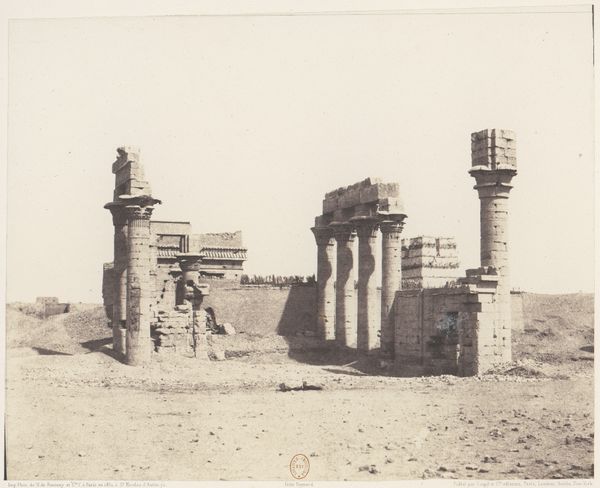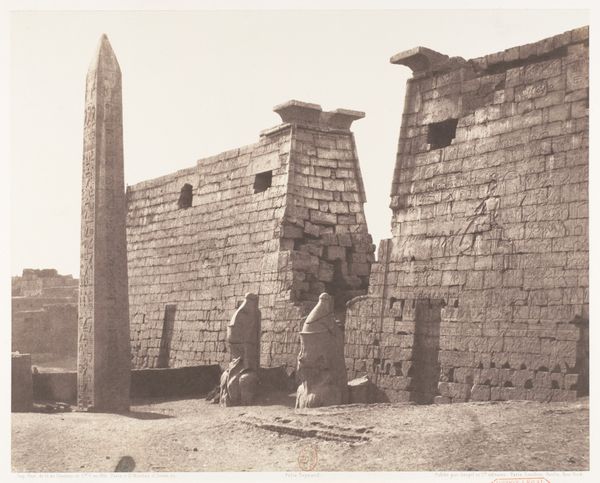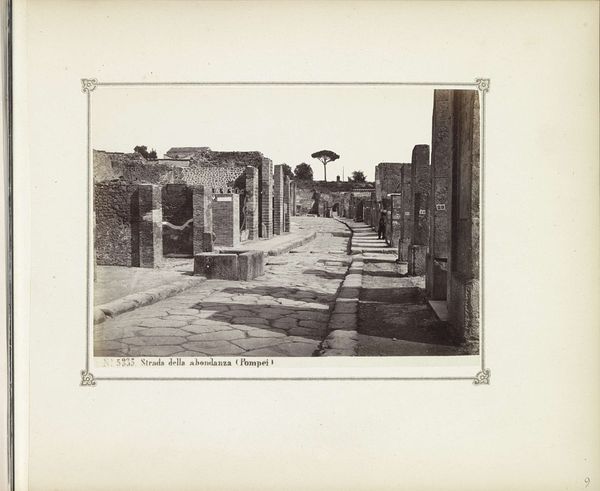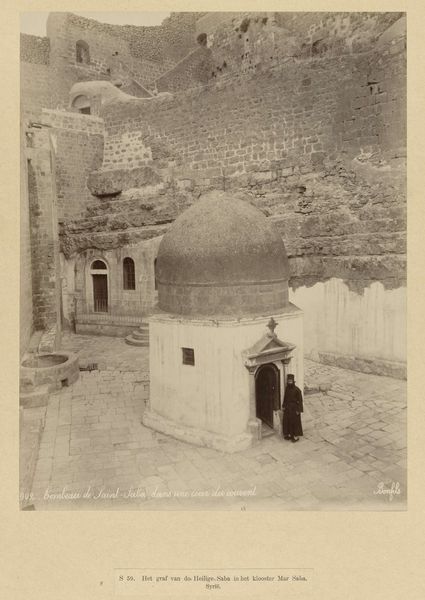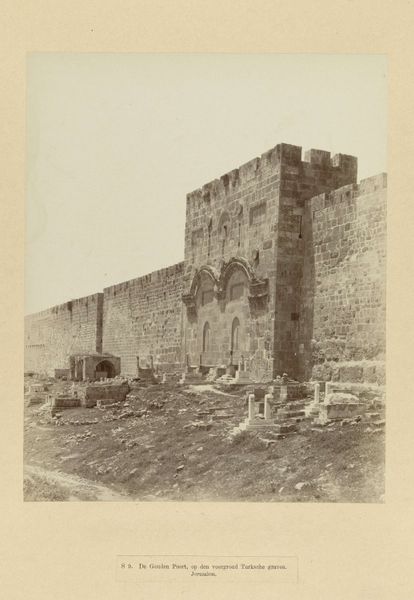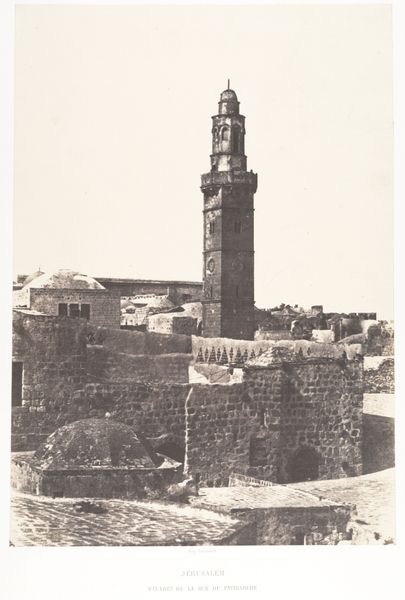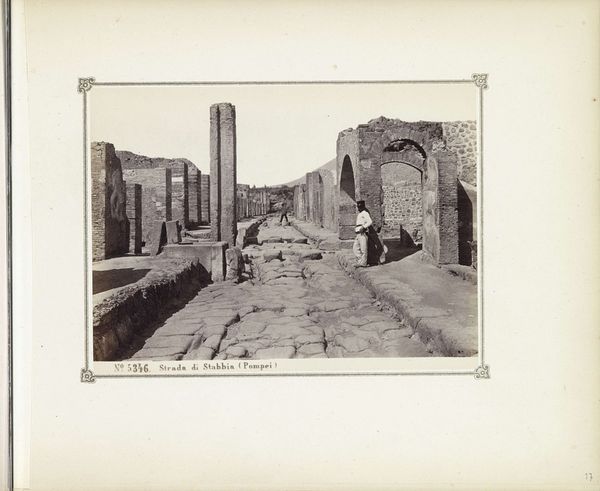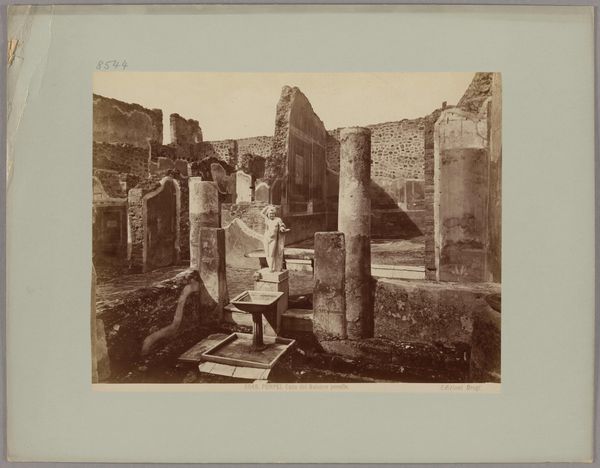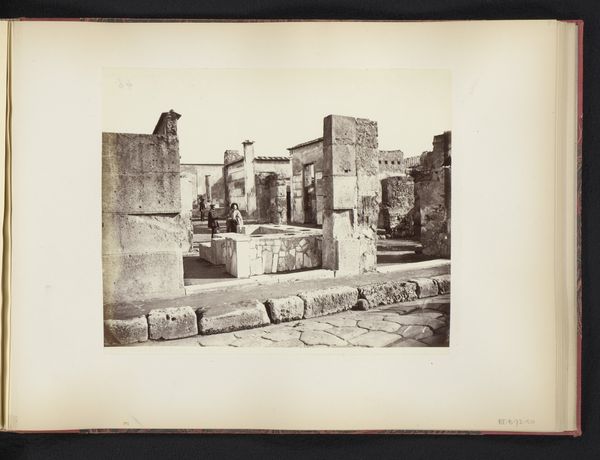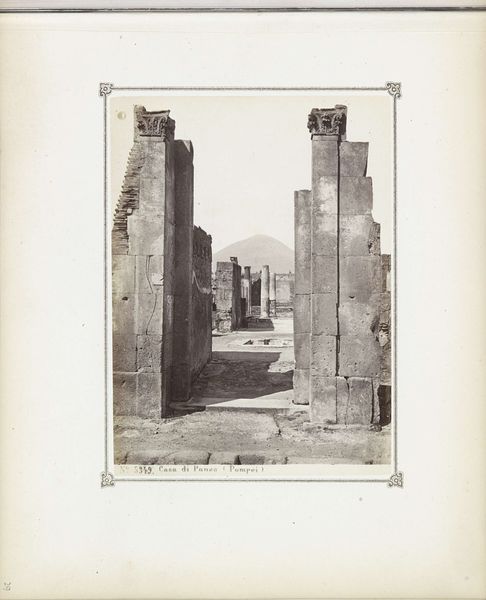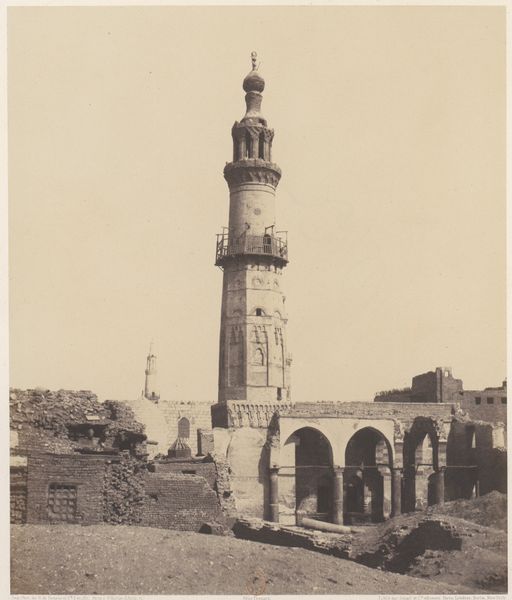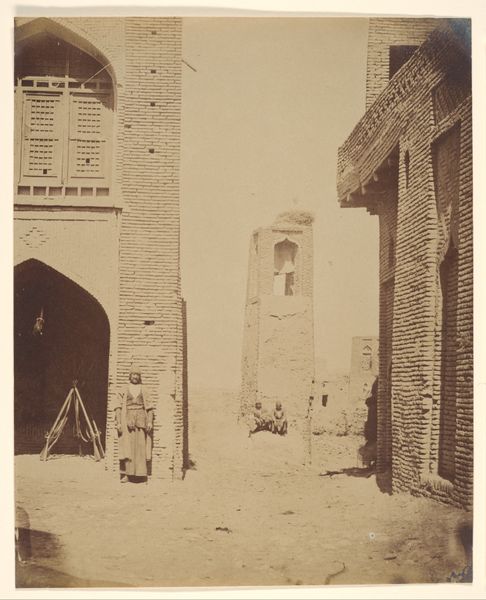
photography
#
yellowing
#
picture layout
#
vintage
#
photo restoration
#
landscape
#
ancient-egyptian-art
#
archive photography
#
photography
#
historical photography
#
old-timey
#
ancient-mediterranean
#
19th century
#
historical font
#
columned text
Dimensions: height 254 mm, width 194 mm, height 555 mm, width 466 mm
Copyright: Rijks Museum: Open Domain
This photograph of the Obelisk of Ramses II at Luxor Temple was captured by Antonio Beato in the late 19th century. Beato, a Venetian-British photographer, was among the first to visually document Egypt for Western audiences. This image, sepia-toned, is more than a mere depiction; it is a carefully constructed narrative. The Luxor Temple, built by Egyptians, photographed by a European, and viewed through a Western lens, embodies a complex intersection of power and representation. Beato’s photographs played a crucial role in shaping the West’s perception of the East. Consider the act of framing: what is included, what is omitted? The photograph invites us to contemplate the dynamics of cultural exchange and the gaze, urging us to reflect on how we see and understand the world through these visual records.
Comments
No comments
Be the first to comment and join the conversation on the ultimate creative platform.
